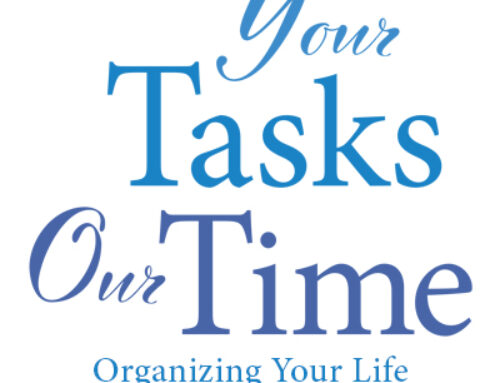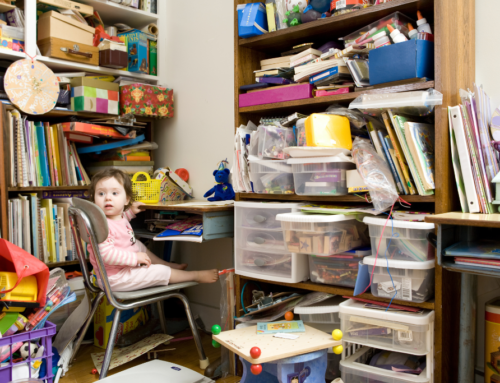As Professional Organizers, we spend most of our time helping clients declutter and organize their spaces. But, with the events that have been unfolding over the past few weeks with the coronavirus, how do we deal with the change that has been thrust upon us? Are there practical steps we can take to reduce the chaos and overall stress that is sure to be impacting many of us during these times of uncertainty? We will outline some ideas below to hopefully help you organize your daily lives as we adjust to our new reality.
Essential Supplies
We all want to make sure we have enough food and necessities to take care of ourselves and our families while we are being asked to self-quarantine and engage in social distancing. But, how do we organize the influx of additional supplies into our space?
- Think Strategically About Purchases – Shopping in this environment can be overwhelming. Although you want to make sure you have enough supplies; you want to avoid buying unnecessary items. While trying to stock up on staples like milk, water and paper towels ask yourself some key questions before heading to the cashier.
- How much milk will your family drink before it expires?
- How many times will your family tolerate eating mac n’ cheese in a 2-week period?
- How much water does our family drink daily?
- Kids can be fickle. Will they still be into the same cereal after the 3rd box?
- Do we need 20 rolls of paper towels, or can we use dish towels and wash them?
- Think Strategically About Storage Space – Most of us do not have empty cabinets just waiting to be filled with extra supplies. In reality, most of us can barely fit our everyday supplies into the kitchen cabinets and hall closets. So, what do we do when we are trying to fit extra supplies into fully stocked spaces?
- Go through your shelves and cabinets and see if there are any expired products that can be removed to free up space.
- You may have to consider putting items in another spot. If you usually keep your cleaning supplies under the sink but the 10 bottles of hand sanitizer you just bought won’t fit in there, you may need to think of another location (e.g., the cabinet above the refrigerator that no one really uses on a daily basis).
- You may also need to consider putting items in a completely different room. That three-shelf bookcase in the living room with the unread books might be the perfect spot for your extra canned goods. The top of the dryer might be perfect for those bulky paper towels that are in the way on the kitchen floor.
The key is to take a few minutes and organize your thoughts on what needs to come into your space and where it will go to avoid adding unnecessary stress to an already stressful situation.
Work from Home / School at Home
With the steady increase of people testing positive across the country, many of us have been asked to work from home. Many schools have closed, and children are switching to online learning. This can create a challenging situation for parents, especially when everyone may need their own space to take that conference call or listen to their teacher’s online lesson. So, how do you arrange your rooms and/or schedule to accommodate everyone’s learning and work needs?
- Parents’ Needs – If you have a dedicated office space at home, you are fortunate. But, if you only have one office and have two adults working from home, that office may still present challenges for accomplishing your work.
- Can your dining room table be used as an office, so you have room to spread out any needed paperwork?
- Can your partner use the office in the morning and you use the dining room, and then you both switch in the afternoon?
- Can your partner use the office today and you use the office tomorrow?
- Can one of you get permission to work evening hours while the other works during the day so someone can tend to the little ones throughout the day without interruption?
- Kids’ Needs – Kids have needs too and sometimes it may be challenging for them to concentrate on their school lessons if they don’t have a space conducive to learning.
- Can the kids do their school lessons in their bedrooms so they can close the door and not be interrupted?
- If they need space to spread out, can one of them use the kitchen table or living room coffee table?
- If they share a bedroom and must share the space while doing lessons, perhaps using headphones or ear buds may reduce background noise and disruptions.
- If they are having trouble focusing because of distractions, ask them what will help them concentrate.
In the end, you have to think about what makes the most sense for your family. It may take a bit of trial and error until you find a setup that works for your family, however, a little bit of planning and organizing can go a long way to reducing stressful events throughout your work or school day.
Source:
Karen Kabara
Professional Organizer
Your Tasks – Our Time, Inc







